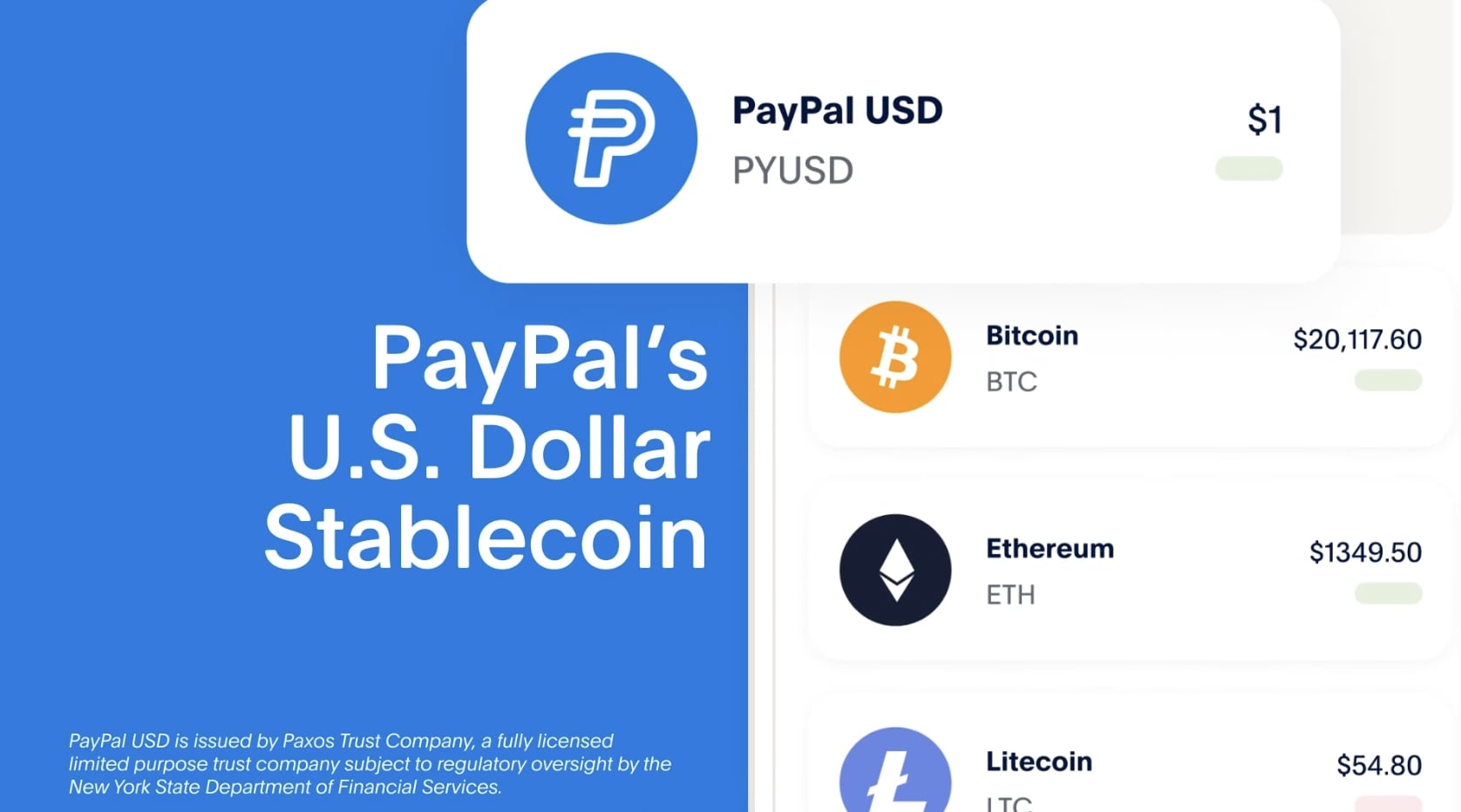PayPal is rolling out a stablecoin for payments and transfers, the company announced on Monday. PayPal USD (PYUSD) is issued by Paxos Trust Company and is backed by U.S. dollar deposits, short-term U.S Treasuries and similar cash equivalents. PayPal says the stablecoin is rolling out to US customers gradually. Today’s announcement marks the first such move from a major U.S. financial institution.
Eligible U.S. PayPal customers who purchase PYUSD will be able to transfer PYUSD between PayPal and compatible external wallets, send person-to-person payments using PYUSD, fund purchases with PYUSD by selecting it at checkout and convert any of PayPal’s supported cryptocurrencies to and from PYUSD.
PayPal says that when you buy or sell cryptocurrency, including when you check out with crypto, it will disclose an exchange rate and any fees you will be charged for that transaction.
“PayPal USD is designed to reduce friction for in-experience payments in virtual environments, facilitate fast transfers of value to support friends and family, send remittances or conduct international payments, enable direct flows to developers and creators, and foster the continued expansion into digital assets by the largest brands in the world,” PayPal wrote in a press release. “Most of the current volume of stablecoins is used in web3-specific environments – PayPal USD will be compatible with that ecosystem from day one and will soon be available on Venmo.”
As an ERC-20 token issued on the Ethereum blockchain, PayPal says PYUSD will be available to a growing community of external developers, wallets and web3 applications, can be easily adopted by exchanges, and will be deployed to power experiences within the PayPal ecosystem.

Image Credits: PayPal
A stablecoin is a type of cryptocurrency whose value is tied to an external asset, such as the U.S. dollar. There is some controversy around stablecoins. Last year, Meta ended up abandoning its plan of having its own stablecoin called Diem after regulatory backlash. PayPal itself paused working on its stablecoin earlier this year amid regulatory scrutiny of crypto, as reported by Bloomberg at the time.
PayPal first introduced crypto services back in 2020 when it began letting users in the U.S. buy, hold and sell cryptocurrencies. Then, in 2021, PayPal announced the launch of Checkout with Crypto, a feature that allowed consumers to check out at millions of online businesses using cryptocurrency. Last year, the company gave users the ability to transfer cryptocurrency from their accounts to other wallets and exchanges.
“The shift toward digital currencies requires a stable instrument that is both digitally native and easily connected to fiat currency like the U.S. dollar,” said PayPal CEO and President Dan Schulman in a press release. “Our commitment to responsible innovation and compliance, and our track record delivering new experiences to our customers, provides the foundation necessary to contribute to the growth of digital payments through PayPal USD.”
PayPal says Paxos will publish monthly reports detailing the assets backing PYUSD starting next month. Paxos will also publish a public third-party attestation of the value of PYUSD reserve assets.
PayPal’s shares fell 7% in extended trading last Wednesday as investors were disappointed by the company’s quarterly operating margin. The payment company’s adjusted operating margin for the quarter came in at 21.4%, missing its forecast of 22%.